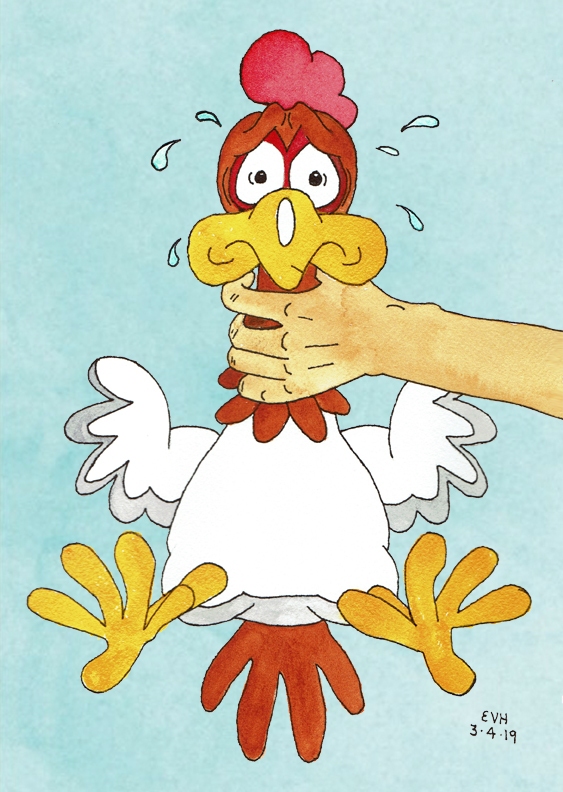
Jataka 119
Akālarāvi Jātaka
The Noisy Rooster
as told by Eric Van Horn
originally translated by Robert Chalmers, B.A., of Oriel College, Oxford University
originally edited by Professor Edward Byles Cowell, Cambridge University
One of the subtle aspects of the Buddha’s teachings on right speech is that there is a time and a place for everything. That distinction is made in this story. In the Buddha’s instructions for right speech, he said that speech must be truthful and of benefit. But it must also come at the proper time. The timing may have to do with the receiver of the speech or the speaker. In the first case, someone may be quite agitated, for example, and so criticizing them then, even though the words may be true and beneficial, may not be appropriate. Likewise, the speaker may have an unskillful intention – anger, for example – and so the speaker must wait until the intention is wholesome. Ajahn Brahm tells the story about a monk in Thailand who had a problem with another monk. But because he could not get a wholesome intention to manifest, he waited five years until he spoke to the other monk. When he finally did speak, he did so out of love, compassion, and wisdom, and the difficult conversation was fruitful.
“No parents trained.” This story was told by the Master while he was at Jetavana. It is about a monk who used to be noisy at all the wrong times. He is said to have come of a good Sāvatthi family and to have given up the world for the Dharma, but he neglected his duties and despised instruction. He never paid attention to the proper time to tend to his duties, for learning, or for reciting the texts. Throughout the three watches of the night, as well as the daylight hours, he was never quiet. As a result the other monks could not get a wink of sleep. Accordingly, the monks in the Dharma Hall condemned his conduct. One day the Buddha entered the Dharma Hall and asked what they were discussing. When they told him, the Master said, “Monks, just as now, so in past times, this monk was noisy at all the wrong times, and for this he was strangled." So saying he told this story of the past.
Once upon a time when Brahmadatta was reigning in Benares, the Bodhisatta was born into a northern brahmin family. When he grew up, he completed his education and became a teacher of world-wide fame. He had 500 young brahmins studying under him.
Now these young brahmins had a rooster who crowed at the appropriate times and roused them to their studies. But this rooster died. So they looked all about for another one. One day one of the students was gathering firewood in the woods next to the cemetery. He saw a rooster there. He brought it home and put into a coop. But because this second rooster had been bred in a cemetery, he did not know the proper times to crow. He crowed at all the wrong times. He would crow unmindfully at midnight as well as at daybreak. Roused by his crowing at midnight, the young brahmins attended to their studies. But by dawn they were exhausted and could not keep their attention on their subjects. When the rooster crowed during the day they did not get the quiet necessary for studying their lessons.
As it was the rooster’s crowing all day and all night that had brought their studies to a standstill, they took the bird and wrung his neck. Then they told their teacher that they had killed the rooster that crowed at all the wrong times.

Figure: The Price of Being Too Annoying!
Using this as a lesson, their teacher said, “It was his bad upbringing that brought this rooster to his end.” So saying, he uttered this stanza:
No parents trained, no teacher taught this bird.
At all the wrong times he was heard.
Such was the Bodhisatta’s teaching on the matter. And when he had lived his allotted time on earth, he passed away to fare according to his karma.
His lesson ended, the Master identified the birth as follows, “This monk was the rooster of those times. He did not know when not to crow. My disciples were the young brahmins, and I was their teacher.”
